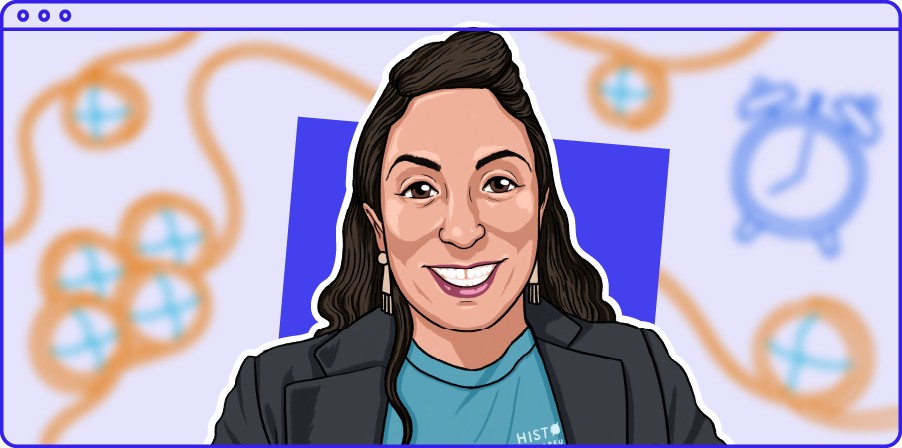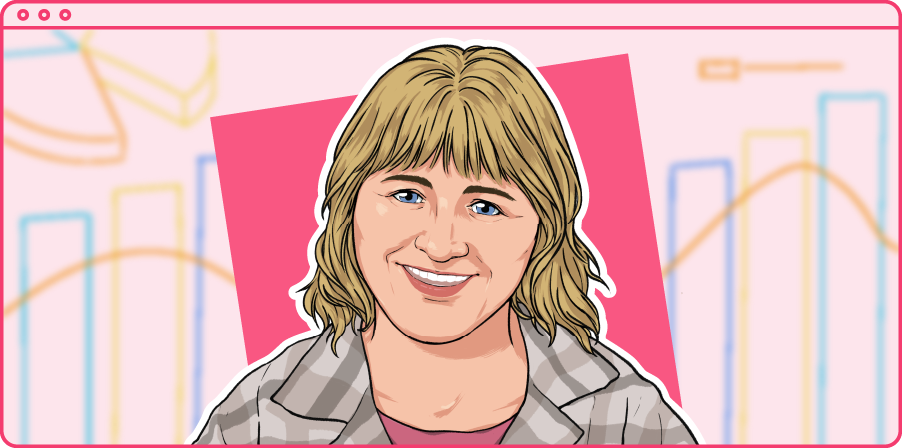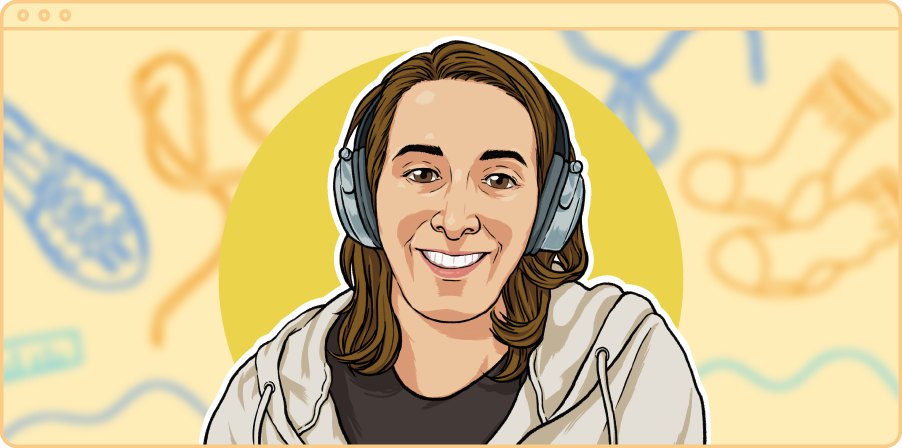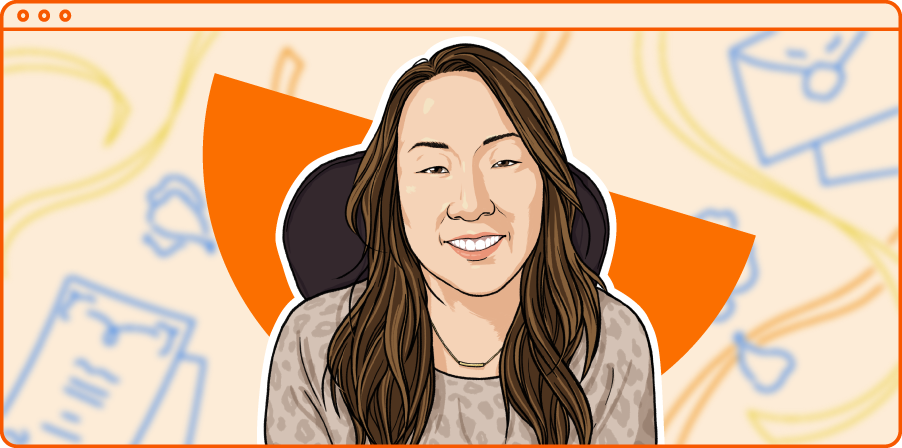This installment in our Women’s Entrepreneur Series is an interview with Shiri Levy, the co-founder and Chief Scientific Officer at Histone Therapeutics. Histone is an epigenetic therapeutics company, which means they focus on developing medicines that target the proteins that turn genes on and off. The company was founded in 2021, initially based on Shiri’s scientific discoveries she made as a post-doctoral researcher at the Ruohola-Baker Lab at the University of Washington.
In this interview, Shiri explains the science behind Histone Therapeutics, talks about the learning curve moving from academia to industry, and reflects on being a woman and a mother in a male-dominated industry, and the challenges and rewards of advancing a cutting edge technology.
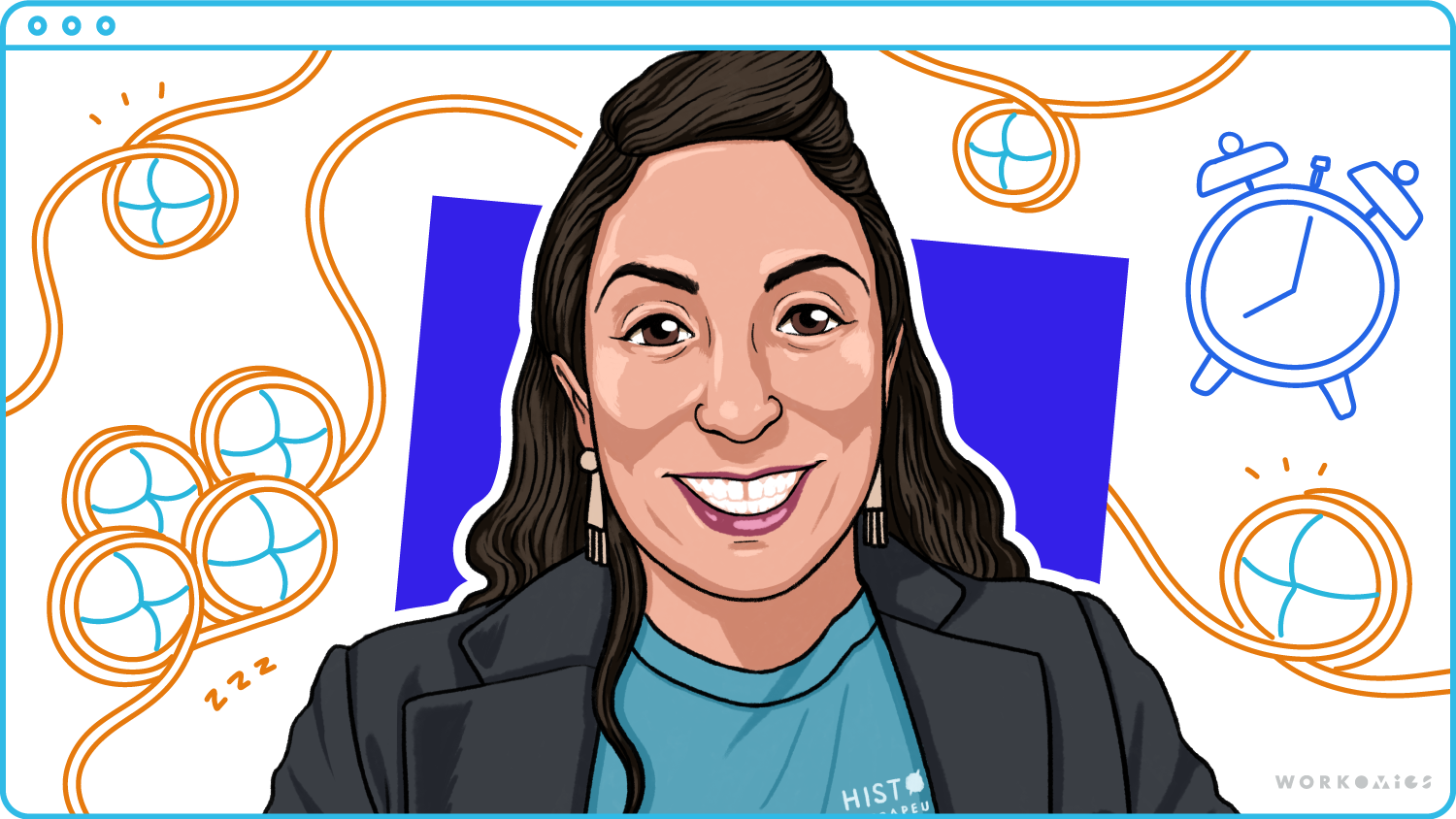
WORKOMICS: Let’s dive in: tell me about your company. Why does it exist, and what is it striving to do?
Shiri Levy: Histone Therapeutics is an epigenetic therapeutics company, which means your next question will be “what does epigenetic mean?”
Epigenetics is everything that happens on the DNA. Right now, there are all kinds of incurable diseases — whether it’s cancer, autoimmune disease, degenerative diseases, or even aging itself — where cells previously functioned well, and now they don’t. With epigenetics, we can reset the cells (how they behave and how they are regulated), so the cells can go back to their typical function. The company exists to create a platform that can potentially tackle many different diseases.
People are familiar with the terms “genetic code” and “DNA”, but in order to regulate DNA there are proteins that turn on or off the expression of genes. At Histone, we have developed technology to turn genes on, and this has allowed us to create genetic medicines. We use our medicines to wake up sleeping or lazy genes.
I have four kids. When I go to wake them up in the morning, it’s a different approach for every kid — whatever works best for them. Our technology is like that — developing different ways to wake up sleepy genes, in the way that works best for each particular gene. We always describe it as “a therapy for genes, not gene therapy.”
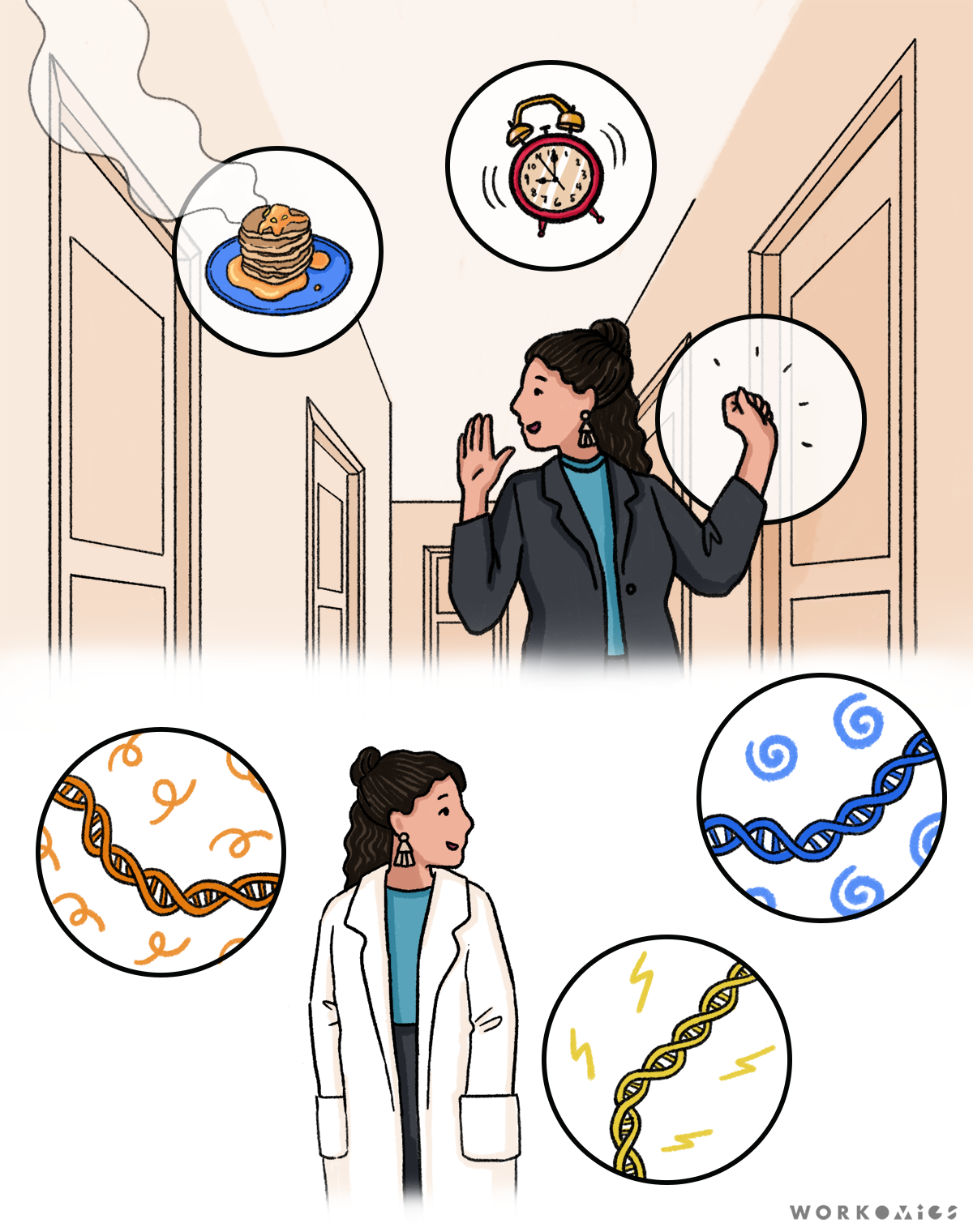
Our company is not the only one working on epigenetics. But we exist in a unique category that we believe is more likely to be safe for patients. First, we deliver our proteins using mRNA (just like the COVID-19 vaccines), where other companies use viruses, which can cause an unwanted immune response. Second, we are non-enzymatic. Enzymes are always “doers” — like an alarm clock you can’t turn off — and that is also tricky for patient safety. Our approach is reversible, so a gene that is turned on can also be turned off.
WKO: Four kids and a start-up. Your days must be very full.
SL: I sleep very little. I don’t go on vacation so much because I need to stay tuned to work. I get a lot of support from my husband who’s my biggest fan. There is a toll, but I do it because I love it. I love the science, the business aspect, the research, all of it. I’m learning so much and pushing the boundaries of what we can do with therapeutics. It excites me to bring it to the patient. For that, I don’t mind missing a baseball game. I’m in this really specific place in my life where it’s all worth it.
WKO: You’re still in a fairly early stage of clinical development. Do you have particular diseases in mind right now that you’re working on as a target?
SL: We have very specific diseases in mind. When you have a broad platform like our technology, it’s a blessing and a curse. We have a universe of opportunities, but we have to make choices about what is the right thing to do for the technology and for the patient. It’s what we think about day and night. We need to clearly understand the unmet need first. There’s no need to develop a drug if there is no advantage to it. We have identified numerous areas where we think our technology has an advantage over current treatments, and where we also think there is potential to make a drug that is simple and safe.
Right now, we are exploring indications in degenerative and metabolic disease. For instance, we have received grant funding from Friends of FSH Research to create a drug for FSH Muscular Dystrophy. If we can strengthen muscle in that disease, imagine what we could do in other diseases as well!
WKO: I’m curious about your journey towards starting Histone Therapeutics as a company. Many scientists might stay in a more academic environment. What made you want to create a company to commercialize your science?
SL: I invented a technology and I saw its merits. I thought gene activation could solve a lot of problems — we’re always trying to silence or block genes. Look what a good job our genes do when we’re healthy!
At the university, I saw companies being spun out, but there weren’t many women doing it. When you look at PhD students and postdocs, 50% are women, and they are so smart and so innovative. Where are all the women spinning out companies? The tomboy in me just screamed, “What about us?”
I decided it was my time to shine. I had a unique, audacious opportunity. I’m very comfortable in the unknown, and I can operate well in fear. I decided to take the risk — either to succeed big or fail big.
WKO: You took the lack of women as a call to arms to give you the extra push to do it.
SL: I couldn’t have done it by myself. Kim Emmons from the Washington Research Foundation was encouraging me ever since I invented the technology. She told me I should do something with it, think about commercialization. In Seattle and in the biotech world there is a strong connection of sisterhood. Now I’m the one pushing others. When I see women around me with new technology, I try to help push them out of their comfort zone. That is where life begins.
In the biotech world there is a strong connection of sisterhood. Now I’m the one pushing others.
When I see women around me with new technology, I try to help push them out of their comfort zone. That is where life begins.
WKO: Commercialization was outside your comfort zone, compared to scientific research.
SL: Four years ago, when I started thinking about a startup, I was the rookiest of rookies. I come from a blue-collar family, first generation to go to college. I didn’t grow up in a home where you talk about things like shares and marketing. It was all new territory for me to navigate. But I’m very comfortable in the unknown, and I operate very well with uncertainty and risk.
I knew I would need support to transition from academic research to the business world. I’m very grateful to my co-founder Gregory Block and the entire team at Histone. There are so many elements that come into play besides the science: executive management, business development, IP and licensing. Our focus is on making a drug that is superior to what already exists today.
WKO: It’s a long journey to get to a clinically superior drug. Where are you in that journey, and what does it look like on the road ahead?
SL: We are early. Right now, we have data from experiments with mice, demonstrating that our technology works as expected in animals. We are working on formulating our technology into an mRNA medicine.
You can’t talk about the road ahead without getting into the zone of AI, and all the tools that are available to us today. We use AI in so many aspects of the company, from helping us figure out the most promising indications to identifying the best delivery mechanisms. In most applications, AI hallucinations are a problem, but in the lab we let the AI hallucinate as much as it wants to come up with the next generation of proteins. We learn a lot from AI, and we believe AI-enabled small teams speed up the process of bringing novel therapies to the patients who need them.
But as a therapeutics company, at the end of the day, we have to come up with the data. We have to do the experiments and figure out if we have a product that works — or doesn’t work — in patients.
WKO: How do you think about the culture of an organization?
SL: I think relationships and trust are the most important thing. In a company like ours, we have to be comfortable making mistakes, and confident enough to debate ideas and disagree. That only happens when everyone feels a level of responsibility and accountability towards the organization and what it’s trying to do. It’s like a pyramid: At the bottom, you have the foundation of trust and relationships. We have to trust each other first of all.
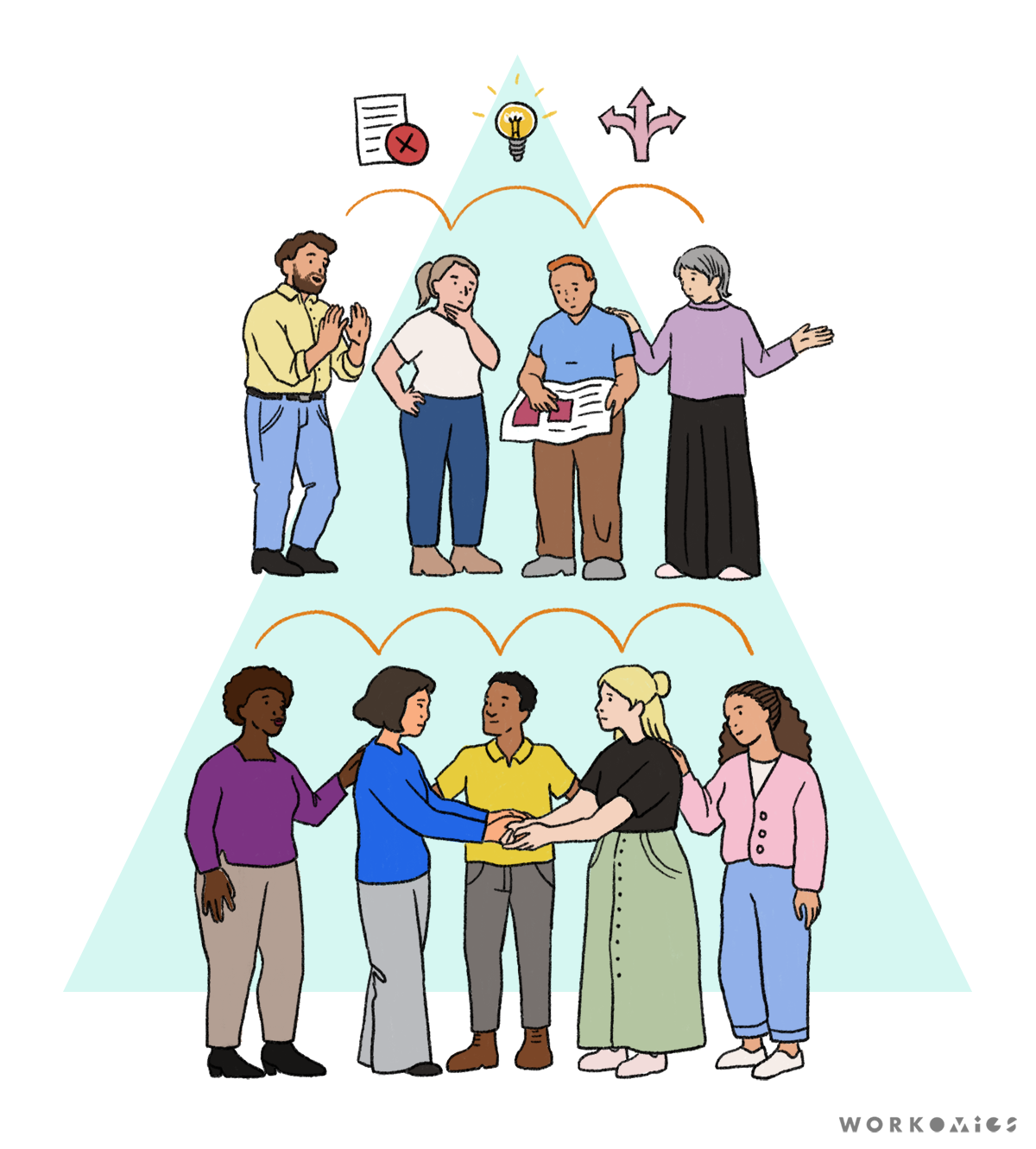
We have a small team who are all very, very tight and comfortable with one another. Because we have that trust, we can feel safe debating the right path. I always bring all my emotions. To me, it’s not a disadvantage — it’s an advantage. When we have a great experiment, we celebrate. When something completely doesn’t work, we cry. It’s okay. It’s all in the realm of humanity. We don’t need to behave in a rigid corporate manner. We have to be true to ourselves. I’m a woman, a mother, a daughter, a wife, as well as a scientist. I bring it all to the lab with me.
WKO: What’s the long-term goal for you and for Histone?
SL: I’m ready to do whatever it takes. My “why” is to help one child. If there is one mom who doesn’t have to sit at the bedside in the hospital while her kid suffers with a degenerative disease, that is why we’re doing what we’re doing. We have to make sure the technology gets all the way to patients.
We’re at the beginning of understanding the power of epigenetics. What I’d like to happen is for Histone to grow and grow, bringing new exciting molecules to the clinic. That would be my audacious goal.
Our other ideas worth exploring
“I want to hang my hat on me”
Krista Lee Hynes, co-founder and managing partner at Ignite Financial, talks about her journey from theatre to financial planning, and why she has always bet on herself.
Running shoes designed for women
Lindsay Housman, CEO of Hettas, talks about researching and designing a running shoe specifically for women, along with her philosophy on flexible work, and the challenges of fundraising as a female founder.
A business in transition
Rebecca Chan, owner and creative director of Rebecca Chan Events, talks about transitioning her business from weddings to corporate marketing.

